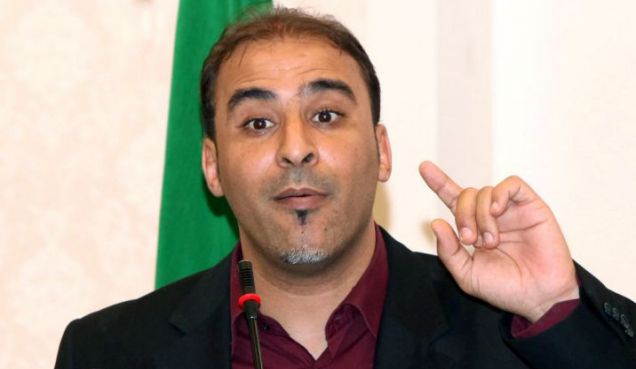Razz is what you get when you fuse freewheeling jazz with strong rock beats echoed by an electric guitar fed with expressive Arabic lyrics. The ingredients are simple: rock, oriental and jazz.
El Geneina Theatre audience experienced this innovative new sound last Thursday in a short but playful performance by young Jordanian singer/songwriter Aziz Maraka and the Razz Band. The engaging and entertaining concert acted as a solid introduction to a musician scuffling to find his place along the music spectrum.
The young Jordanian band started dabbling with alternative music genres when lead singer/ pianist Maraka was prepping for his graduation project while studying music composing in the United States.
Caught between the American inborn flair for sax and the dominance of nationalistic anthems in Jordan, which, according to him, were unrepresentative of the Jordanian people, Maraka decided to tune up both.
Maraka opted for a funky mix: rock’s forceful energy coupled with the spontaneity and unpredictability of jazz played to Arabic lyrics pumping up with emotion.
“I wanted to sing something for the people [Jordanians] so I started composing my own songs. I did not ever think I was gonna be a singer, Maraka told Daily News Egypt.
Maraka’s theoretical background in music is rooted in classical arrangement and orchestration. Realizing that classical music is not popular among contemporary listeners in his hometown, he was determined to create an accessible, yet original, new form.
“Four years ago, I was a person who was singing but did not feel like he was heard, Maraka said. “I didn t change my concepts about music; [now] I just have a better understanding of my audience.
The endearing, charming opening number “Bent El-Nas (Daughter of the People) tells the story of a young man pleading for his beloved’s attention. The song featured two solos, one by Maraka’s jazzy keyboard and the other by an accompanying nai (reed flute) in a clear manifestation of how both worlds harmoniously blend. Along with the Nai, Maraka’s band featured a bass guitar, an electric guitar, drums, a saxophone, percussion and violin.
“Ma Bagollek Asef (I Am Not Saying Sorry) and “Najeh (Successful) are also upbeat numbers with clear traces of rock that got the audience bouncing joyously in their seats. Meanwhile, “Ah Ya Helwa, “Kteer ‘Adi, “Bahki Lahali and “Al ‘Atwa carried a more somber mood.
While “Lahali (Alone), narrated by a man stranded away from home, is centered on estrangement and homesickness, “Al ‘Atwa (Vengeance) examines revenge rituals that continue to exist among the Bedouin tribes in Jordan. Although not explicit, to Maraka, “Al ‘Atwa symbolizes the ongoing tension between Sunnis and Shias in the Muslim world.
“Just recently I started to feel that this genre is going somewhere … In Jordan, it’s actually making a movement, Maraka said, citing a number of upcoming bands playing on the radio with signs that they have adopted a similar style to Razz.
In Jordan, most alternative music features angry artists “singing about random concepts and trying to impose the philosophy of their lives on the listeners, according to Maraka, a reality that is certainly not specific to Jordan.
“I always tell them instead of sitting outside the box, you need to get in the box and make it bigger by adding to it.
Maraka is not known for a particularly strong voice, yet his rugged, imperfect vocals are, nevertheless, enchanting. And for that, he is grateful to great Egyptian singer Mohamed Mounir. “He told me that singing is not impossible when I always thought of myself as a composer not a singer, Maraka said.
Among his other influences is British rock band Muse, with vocalist/pianist Matthew Bellamy being a strong inspiration for him.
Aziz Maraka and the Razz band were able to please a 200-some crowd of Razz newbies; their music arrangement is simple, the lyrics are easy to identify with and the show was downright fun.
